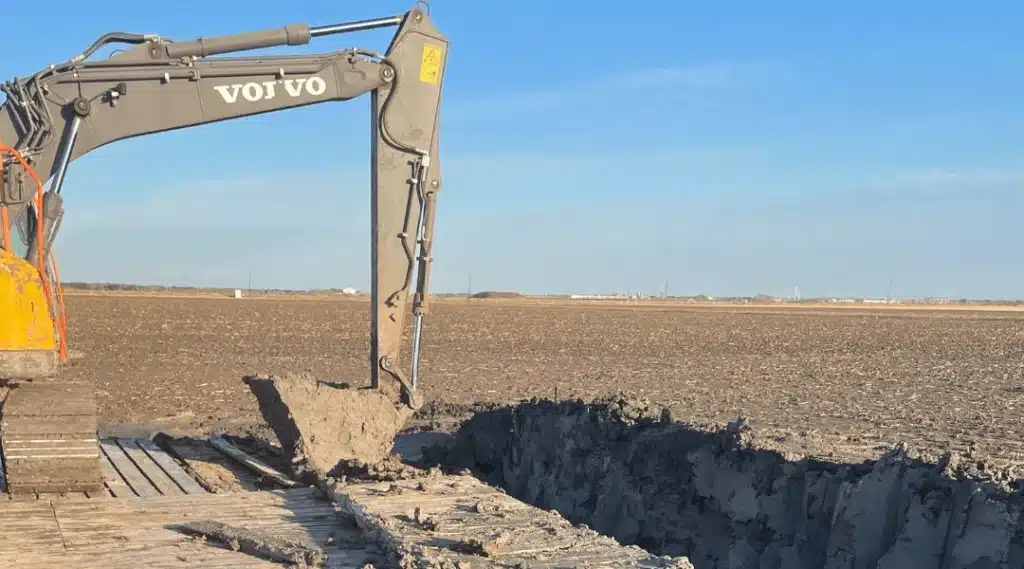Selling mineral rights can be a complex process for many mineral owners, especially if you’re not familiar with the industry. This guide aims to explain the process of selling your mineral rights, providing you with the information needed to make an informed decision.
Table of Contents
ToggleUnderstanding Mineral Rights
Mineral rights refer to the legal ownership of resources like oil, natural gas, and other minerals that are found beneath the surface of a property. As a mineral owner, you have the legal right to sell, lease, or donate these resources as you see fit.
Types of Mineral Rights
Mineral Interest
This is the most comprehensive form of mineral rights and mineral ownership. As a mineral owner, you have the right to lease your property and negotiate the terms of the lease, including the royalty rate and leasing conditions.
Royalty Interest
In this case, mineral owners have complete rights to the underground oil and gas resources without any restrictions. The owner can lease the property, negotiate lease conditions, collect lease bonus payments, and collect royalties.
Non-Participating Royalty Interest
This type of mineral interest is created from the mineral estate. “Non-participating” means the interest owner holds no executive rights and does not share in the lease bonus or delay rental payments.
Working Interest
A royalty interest owner can become a working interest owner by participating in oil and gas drilling with the operator. This involvement means sharing some drilling, completion, and production costs.
Why Sell Mineral Rights?

There are several reasons why many mineral owners might consider selling their mineral rights:
Financial Need: If you’re facing financial difficulties, selling your rights can provide a significant lump sum payment.
Market Conditions: If oil, gas, or other minerals prices are high, it might be a good time to sell your rights.
Estate Planning: Selling your rights can simplify estate planning and management, making it easier to distribute assets to heirs.
Tax Considerations: By selling the rights to your minerals, you can potentially reduce your tax liability.
Financial Need: If you’re facing financial difficulties, selling your rights can provide a significant lump sum payment.
Market Conditions: If oil, gas, or other minerals prices are high, it might be a good time to sell your rights.
Estate Planning: Selling your rights can simplify estate planning and management, making it easier to distribute assets to heirs.
Tax Considerations: By selling the rights to your minerals, you can potentially reduce your tax liability.
Factors Influencing Mineral Rights Value

Historical Production: If your property or neighboring properties have a history of successful mineral production, it could enhance the value of your rights.
Future Prospects: The potential for future discoveries or the likelihood of increased drilling activity in your area can also boost the value.
Size of Property: Larger plots often carry more value, especially if they’re in a region known for rich mineral reserves.
Future Prospects: The potential for future discoveries or the likelihood of increased drilling activity in your area can also boost the value.
Size of Property: Larger plots often carry more value, especially if they’re in a region known for rich mineral reserves.
The Selling Process
The selling process for mineral owners can be broken down into several key steps, each of which plays a role in ensuring a successful transaction with mineral buyers.
Determining the Value of Your Mineral Rights: Before you can sell your mineral rights, you need to know their worth. This requires a thorough assessment of several factors, including the location of the property, the geological context, the productivity of any existing wells, and current oil prices or gas prices.
Finding Mineral Buyers: Once you’ve determined the value of your mineral rights, the next step is to find a mineral buyer. This could be an individual, a company, or a mineral rights broker.
Negotiating the Sale: The negotiation process involves discussing the terms of the sale with the buyer. This includes the sale price, payment method, and any other relevant conditions.
Completing the Sale: After the terms of the sale have been agreed upon, the final step is to complete the transaction. This typically involves signing a purchase and sale agreement and receiving the agreed-upon payment.
Determining the Value of Your Mineral Rights: Before you can sell your mineral rights, you need to know their worth. This requires a thorough assessment of several factors, including the location of the property, the geological context, the productivity of any existing wells, and current oil prices or gas prices.
Finding Mineral Buyers: Once you’ve determined the value of your mineral rights, the next step is to find a mineral buyer. This could be an individual, a company, or a mineral rights broker.
Negotiating the Sale: The negotiation process involves discussing the terms of the sale with the buyer. This includes the sale price, payment method, and any other relevant conditions.
Completing the Sale: After the terms of the sale have been agreed upon, the final step is to complete the transaction. This typically involves signing a purchase and sale agreement and receiving the agreed-upon payment.
Preparing for the Sale

Before you embark on selling your mineral rights:
Gather All Documents: Make sure you have all the necessary documentation. This includes deeds, leases, and any previous royalty statements if available.
Consult Professionals: Professionals in the mineral field can provide insights to help ensure that the sales price or contract is in your favor.
Stay Updated with Industry News: Understanding the current oil and gas market can give you an edge during negotiations. If there’s a surge in demand or if new reserves are discovered near your property, it can significantly influence your bargaining power.
Gather All Documents: Make sure you have all the necessary documentation. This includes deeds, leases, and any previous royalty statements if available.
Consult Professionals: Professionals in the mineral field can provide insights to help ensure that the sales price or contract is in your favor.
Stay Updated with Industry News: Understanding the current oil and gas market can give you an edge during negotiations. If there’s a surge in demand or if new reserves are discovered near your property, it can significantly influence your bargaining power.
Proceeding With The Sale: Leasing vs. Selling Outright
One of the primary decisions mineral owners must make is whether to lease their rights or to sell them outright. Each option comes with its own set of advantages and disadvantages. Making an informed choice between these two can make a significant difference in your returns and future engagements with the property.

Advantages of Leasing Mineral Rights
- Retain Ownership of the Mineral Rights: By leasing, you maintain control and ownership of the mineral rights, allowing for future decisions based on changing market conditions or personal circumstances.
- Earn Royalties from the Lease: As the mineral resources are extracted and sold, you receive a portion of royalty income from the profits, providing a steady stream of income over time.
- Short-term Commitment: Leasing agreements typically last between 3-5 years. This allows for reevaluation and renegotiation based on changing circumstances and market conditions.
- Potential Bonus Payments: Some leases also come with upfront bonus payments, providing an immediate financial benefit in addition to future royalty payments.
Disadvantages of Leasing Mineral Rights
- Income is Not Guaranteed: If exploration doesn’t lead to successful extraction, or if the extracted resources aren’t sold, you may not receive any royalty payments.
- Rapid Depreciation of the Property’s Value: If the extraction activities are unsuccessful or deplete the maximum value of the reserves, it could reduce the property’s overall value.
- Possibility of Entering into Unfavorable Lease Conditions: Without proper guidance or understanding, you may sign a lease that doesn’t favor your best interests, leading to lower royalties or unfavorable terms.
Advantages of Selling Your Mineral Rights
- Immediate Lump Sum Payment: Selling offers an upfront payment, providing an immediate financial boost that can be invested or used as deemed fit.
- Transfer of Risks: The complexities and risks associated with mineral extraction, including operational and market-related risks, are transferred to the buyer.
- Potential for Capital Gains Tax Benefits: Depending on the sale’s specifics and your personal financial situation, selling your mineral estate rights might provide certain tax advantages related to capital gains.
- Freedom from Management: Selling your rights frees you from any management responsibilities, lease negotiations, or concerns about future extraction activities.
Disadvantages of Selling Your Mineral Rights
- Loss of Potential Future Profits: If the area sees a significant rise in production or market prices increase dramatically, you miss out on potential future profits.
- No More Royalty Payments: Once you sell, you forego any future royalty payments, such as oil and gas royalties. This means that even if the land produces valuable resources for years, you won’t see any part of those profits.
- Permanent Decision: Selling is a final decision. Unlike leasing, where you have the potential to reevaluate your decision at the end of the lease term, selling means you relinquish your rights forever.
The Role of an Expert

Navigating the waters of the oil and gas industry, especially when it comes to selling your mineral rights, is no simple task. That’s where the expertise of a seasoned professional becomes invaluable.
Knowledge and Understanding: The intricacies and nuances of the industry can be overwhelming for mineral owners, especially for those unfamiliar. An expert has a deep understanding of how the industry operates.
Assessment of Value: Determining the right value for your mineral rights requires a deep understanding of various factors. An expert can provide an accurate appraisal based on factors like historical production, future prospects, and current market conditions.
Negotiation Power: When it comes to sealing the deal, negotiation is key. An expert can represent your best interests, making sure you get the best price and terms and conditions for the sale.
Legal Navigation: The sale of mineral rights involves legal paperwork and contracts. Having an expert ensures all legal aspects are appropriately addressed, reducing the risks of potential pitfalls or misunderstandings down the line.
Personalized Advice: Every mineral rights owner’s situation is unique. An expert can provide personalized guidance tailored to your specific needs and circumstances, helping you make informed decisions.
Knowledge and Understanding: The intricacies and nuances of the industry can be overwhelming for mineral owners, especially for those unfamiliar. An expert has a deep understanding of how the industry operates.
Assessment of Value: Determining the right value for your mineral rights requires a deep understanding of various factors. An expert can provide an accurate appraisal based on factors like historical production, future prospects, and current market conditions.
Negotiation Power: When it comes to sealing the deal, negotiation is key. An expert can represent your best interests, making sure you get the best price and terms and conditions for the sale.
Legal Navigation: The sale of mineral rights involves legal paperwork and contracts. Having an expert ensures all legal aspects are appropriately addressed, reducing the risks of potential pitfalls or misunderstandings down the line.
Personalized Advice: Every mineral rights owner’s situation is unique. An expert can provide personalized guidance tailored to your specific needs and circumstances, helping you make informed decisions.

If the process of selling feels daunting, remember, that you don’t have to go through it alone. Let our expertise be the compass in your journey. Contact Trull Service Company today and ensure your interests are in the right hands.
Questions to Consider
Is it worth it to sell mineral rights?
Deciding whether it’s worth selling your mineral rights depends on several factors. The current market conditions can influence this decision. If these prices are high, selling might yield a substantial lump sum.
However, individuals should also consider future potential. If there’s a likelihood of significant development in your area in the coming years, selling now might mean missing out on potentially higher returns later. It’s essential to weigh the immediate financial benefits against potential future royalties.
However, individuals should also consider future potential. If there’s a likelihood of significant development in your area in the coming years, selling now might mean missing out on potentially higher returns later. It’s essential to weigh the immediate financial benefits against potential future royalties.
What happens when you sell mineral rights?
When you sell mineral rights, you transfer the ownership of the underground resources, such as oil and gas minerals, or other minerals, to the buyer. While you might still own the surface land, you no longer have a stake in the resources beneath. The buyer gains the legal authority to explore, extract, and sell these resources.
Why would someone sell their mineral rights?
Some might be facing financial needs that necessitate a significant immediate payment. Others might believe that it’s an advantageous time to sell due to favorable market conditions, particularly when oil and gas prices are high.
Estate planning can be another motivator. Selling can simplify asset distribution to heirs. Additionally, selling these rights can also be a strategic move to reduce one’s tax liability.
Lastly, the unpredictable nature of the oil and gas industry might drive some owners to cash in their rights for a guaranteed sum, rather than gamble on future market trends.
Estate planning can be another motivator. Selling can simplify asset distribution to heirs. Additionally, selling these rights can also be a strategic move to reduce one’s tax liability.
Lastly, the unpredictable nature of the oil and gas industry might drive some owners to cash in their rights for a guaranteed sum, rather than gamble on future market trends.
Final Thoughts
It’s important to understand both the potential benefits and drawbacks. While an immediate lump sum payment is tempting, one must weigh it against future royalties.
Consulting with professionals, like a mineral rights broker or a tax advisor, can provide clarity, ensuring you make an informed choice. Remember, your mineral rights are a valuable commodity. Whatever your decision, make sure it aligns with your long-term financial goals and priorities.
Consulting with professionals, like a mineral rights broker or a tax advisor, can provide clarity, ensuring you make an informed choice. Remember, your mineral rights are a valuable commodity. Whatever your decision, make sure it aligns with your long-term financial goals and priorities.
Contact Trull Service Company

Selling mineral rights can be a complex process, but with thorough research and careful consideration, it can also be a financially beneficial decision. If you’re considering selling your mineral rights, don’t hesitate to Contact Trull Service Company for further advice and assistance.











